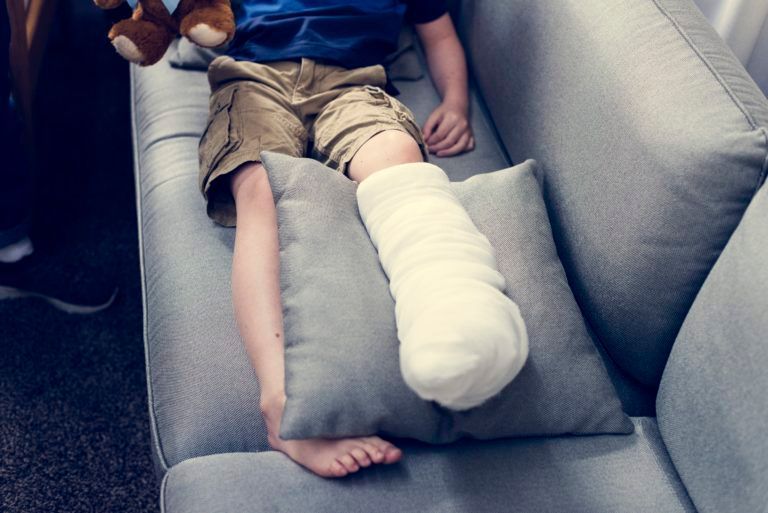PERSONAL INJURY CLAIMS INVOLVING MINORS – SPECIAL RULES APPLY IN FLORIDA

When a minor is injured in Florida, special rules and laws apply to settling a minor’s personal injury claim. Florida Statute 744.387 controls the settlement of all personal injury claims involving minors. While this statute makes the settlement of a minor’s claim more complex and time consuming, its goal is to protect the minor from unscrupulous people, and make sure the proposed settlement is in the minor’s best interest (i.e. the settlement is fair). Florida Statute 744.387 accomplishes these goals by requiring, in most instances, Court approval of a minor’s personal injury claim.
Many attorneys who handle personal injury claims for minors “hire out” and need assistance from a guardianship attorney to obtain Court approval for a proposed settlement of a minor’s personal injury claim. At GOLDMAN, TISEO & STURGES, P.A., our attorneys not only resolve the minor’s underlying personal injury claim, but also shepherd the proposed settlement through the guardianship process without any outside assistance from other attorneys or law firms. In cases involving minors, we handle our claims from start to finish, directly with you and your family.
A minor in Florida is anyone under 18. A minor does not have the legal authority to settle their own personal injury claim, nor can they control settlement funds. Minors are usually “represented” in their cases by parents, who are their legal guardians. However, in situations involving the absence of a parent, or the absence of a suitable parent, a court can appoint another person to act as Guardian.
The safeguards put in place for the protection of minors under Florida Statute 744.387 vary depending on the proposed settlement amount of the personal injury or wrongful death claim. In short, the larger the claim value, the more safeguards are in place to protect the minor. Below is a list of the requirements of Florida Statute 744.387 when resolving the personal injury claim of a minor:
Is Court Approval of Settlement Required?
- Gross Settlement is $15,000.00 or less – If a lawsuit has not been filed yet – NO.
- If a lawsuit has already been filed – YES.
Court approval is obtained by opening up a Guardianship for the minor. A Petition for Approval of Minor’s Settlement with the Court is then filed. The Petition must contain all pertinent details of the case, such as the issues of liability and damages, the amount of the settlement, and the amount of attorneys’ fees and costs.
- Gross Settlement is greater than $15,000.00, but less than $50,000.00 – YES.
- Gross Settlement in excess of $50,000.00 – YES.
Is It Necessary to Appoint a Guardian of the Property?
- Gross Settlement is $15,000.00 or less – NO.
- Gross Settlement is greater than $15,000.00, but less than $50,000.00 – YES, but only if the net settlement (gross settlement minus attorneys’ fees and costs) exceeds $15,000.00 .
- Gross Settlement in excess of $50,000.00 – YES, but only if the net settlement exceeds $15,000.00.
The Guardian of the Property, usually the minor’s legal guardian, is responsible for signing releases and collecting the net settlement proceeds. However, the Court (and not the Guardian of the Property) retains sole jurisdiction to determine how and where the minor’s net settlement funds will be held, and what they may be spent on. The Court, and not the Guardian of the Property, controls and safekeeps the minor’s funds until the minor reaches the age of 18. If the Guardian of the Property wants to access the minor’s funds, court approval is first required. In granting or denying such a request, the Court will consider whether or not the request is in the best interests of the minor.
Is a Guardian Ad Litem Required?
- Gross Settlement is $15,000.00 or less – NO.
- Gross Settlement is greater than $15,000.00, but less than $50,000.00 – DISCRETIONARY WITH THE COURT.
- Settlement Exceeds $50,000 – YES .
A Guardian Ad Litem is another attorney with personal injury case experience who, in essence, provides a “second opinion” to the Court as to whether or not a proposed settlement in a minor’s claim is in the child’s best interests or not. The assigned Guardian Ad Litem will review the minor’s attorney’s file, interview the attorney, minor, and parents of the minor, and prepare a final report to the Court regarding their findings and opinions.
GTS is Here to Protect Your Family
If your child was involved in an accident caused by the negligence of another, learn how our Southwest Florida accident lawyers can help you and your family recover fair compensation. Our experienced and compassionate team at GOLDMAN, TISEO & STURGES, P.A. will advise you how we can help you and your family during a FREE consultation. Please call us at (941) 625-6666 or send us a message through our contact us box available on our website here. Whether you are a resident of Florida or were injured while visiting from out of state, our Florida personal injury lawyers can assist.
Share This Post:






